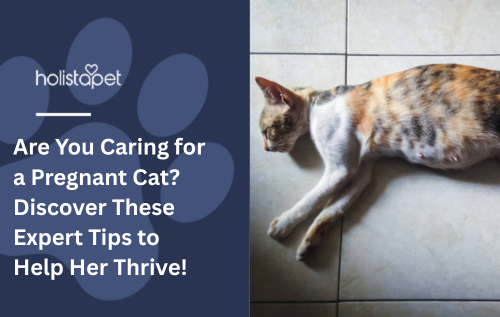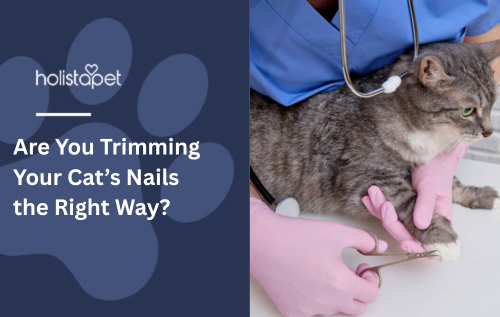Caring for a pregnant cat is a heartwarming and rewarding experience—but it also comes with responsibilities. Whether you're a first-time cat parent or a seasoned feline friend, it's essential to understand the signs of pregnancy, provide proper nutrition, and create a comfortable environment for the mother-to-be. In this guide, we’ll walk you through essential pregnant cat tips to ensure a smooth and healthy journey for your feline companion.
Understanding Feline Pregnancy
Feline pregnancy typically lasts between 63 to 67 days. During this period, your cat will undergo physical and behavioral changes. It's important to recognize the early signs and know how to respond at each stage of her pregnancy.
Top 10 Pregnant Cat Tips Every Pet Owner Should Know
1. Confirm the Pregnancy with a Vet
Once you suspect your cat might be pregnant—due to signs like enlarged nipples, weight gain, or nesting behavior—schedule a visit to your vet for confirmation and professional advice.
2. Feed Her a Nutrient-Rich Diet
Switch to high-quality kitten food during pregnancy. It offers the extra protein and nutrients that support her health and the development of her kittens.
3. Create a Quiet, Comfortable Nesting Area
As your cat nears labor, she’ll begin to look for a safe space to give birth. Provide a cozy, clean box or quiet corner with soft bedding to help her feel secure.
4. Minimize Stress and Avoid Handling Her Excessively
Pregnant cats can be sensitive to changes in their environment. Avoid loud noises, unnecessary handling, and introducing new pets during this time.
5. Keep Her Indoors
Pregnant cats should remain indoors to avoid potential dangers, such as injuries, illnesses, or conflicts with other animals.
6. Schedule Regular Vet Check-Ups
These visits ensure the pregnancy is progressing smoothly and allow the vet to check for complications like infections or parasites.
7. Monitor Her Behavior Closely
Changes in appetite, grooming habits, or signs of distress may indicate a problem. Don't hesitate to contact your vet if something seems off.
8. Watch for Signs of Labor
Look for indicators like nesting, panting, and a drop in body temperature. Labor may last several hours, and your presence can offer comfort (without interfering).
9. Know When to Call the Vet During Labor
If labor exceeds 24 hours, or if your cat is straining for more than 30 minutes without delivering a kitten, contact a veterinarian immediately.
10. Be Prepared for Post-Birth Care
After delivery, make sure your cat and her kittens are warm, safe, and nursing well. Continue feeding her kitten food while she nurses.
Frequently Asked Questions
How can I tell if my cat is pregnant?
Look for physical signs like enlarged nipples (pink and more visible), increased appetite, weight gain, and nesting behaviors. A vet visit is the most reliable way to confirm pregnancy.
Can a pregnant cat be spayed?
Yes, but it’s generally discouraged unless necessary for medical or ethical reasons. Spaying a pregnant cat is a sensitive procedure best discussed with a vet.
Should I assist during the birth?
Most cats can give birth without help. Stay nearby, but don’t interfere unless your cat appears distressed or a kitten is stuck.
How many kittens will my cat have?
Most cats deliver between 3 to 5 kittens, though it can range from 1 to 10. Your vet can estimate the number through palpation or ultrasound.
When should I wean the kittens?
Start introducing kitten food at 4 weeks. Gradually wean over the next few weeks until they eat solid food exclusively by 8 weeks.
Final Thoughts
Being a part of your cat’s pregnancy journey is a special experience. With the right knowledge and support, you can ensure your furry friend stays healthy and comfortable every step of the way. These pregnant cat tips will help you prepare for each stage, from conception to kitten care.
Helpful Notes
-
Always keep your vet’s contact info easily accessible.
-
Prepare a birthing kit (towels, gloves, clean scissors, iodine) in case you need to assist.
-
Avoid flea or deworming treatments unless prescribed by a vet—some medications are harmful to pregnant cats.
-
Keep small children and other pets away from the nesting area during the final days of pregnancy.


 CBD Oil for Cats - Fast Acting
CBD Oil for Cats - Fast Acting
 CBD Cat Treats - Easy Dose
CBD Cat Treats - Easy Dose
 CBD Calming Chews for Cats - Highly Rated
CBD Calming Chews for Cats - Highly Rated
 CBG Oil for Dogs and Cats - Loved by Thousands
CBG Oil for Dogs and Cats - Loved by Thousands





Leave a comment
This site is protected by hCaptcha and the hCaptcha Privacy Policy and Terms of Service apply.